Humans
Sign up for our newsletter
We summarize the week's scientific breakthroughs every Thursday.
-
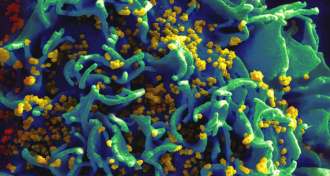 Life
LifeSemen seems to counteract microbicides that kill HIV
Semen seems to inhibit most microbicides from killing HIV, but one that targets a receptor on cells remains effective, suggesting a promising approach against HIV.
-
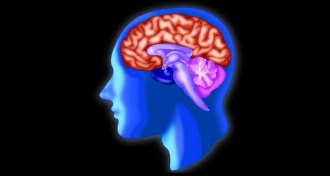 Neuroscience
NeuroscienceStopped brain clock saves memory in hamsters
Broken timekeeper in brain may explain some memory problems, hamster study suggests.
By Meghan Rosen -
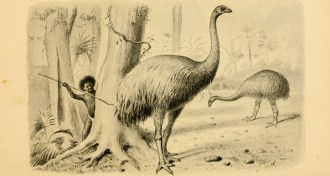 Animals
AnimalsFew humans were needed to wipe out New Zealand’s moa
A new study finds that the Maori population was still small when it managed to drive several species of large, flightless birds extinct.
-
 Genetics
GeneticsRare mutations may protect against heart disease
Rare mutations in a key gene seem to lower bad cholesterol and provide protection against heart disease.
By Nathan Seppa -
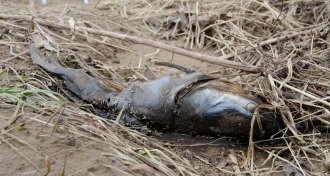 Health & Medicine
Health & MedicineFoul smells during sleep may help smokers quit
A night of smelling rotten eggs and fish while inhaling cigarette odors makes smokers reach for fewer cigarettes upon waking.
-
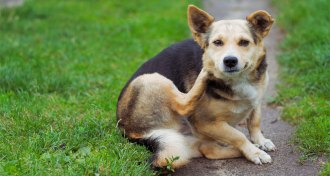 Neuroscience
NeuroscienceSerotonin lies at the intersection of pain and itch
Serotonin may help relieve pain, but it also causes itch. A study shows why scratching just makes it worse.
-
 Health & Medicine
Health & MedicineWhooping cough shot shown safe for pregnant women
Women who get a booster shot against whooping cough, or pertussis, during pregnancy don’t increase their risk of having a problem birth, and they boost their babies’ immunity to the disease.
-
 Environment
EnvironmentThirdhand smoke poses lingering danger
Harmful cigarette chemicals that linger on surfaces, known as thirdhand smoke, can go on to pollute the air and may harm people’s health.
By Beth Mole -
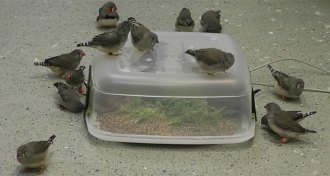 Neuroscience
NeuroscienceFor a friendlier zebra finch, just add stress
Adding stress hormones to the diet of developing zebra finches produced birds that were social butterflies.
-
 Health & Medicine
Health & MedicineUncommon malaria spreading in Malaysia
Malaria parasite’s jump from monkeys to people seems aided by deforestation in Malaysia.
By Nathan Seppa -
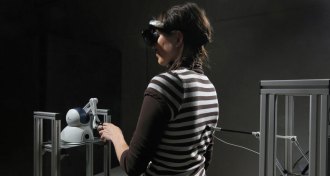 Psychology
PsychologyWith a tap on the back, researchers create ghostly sensation
Experimentally induced illusion probes supernatural experiences, hallucinations.
By Bruce Bower -
 Materials Science
Materials ScienceBatteries become safe to swallow with spongy covering
Quantum-inspired coating switches from a conductor to an insulator to prevent injury from swallowed batteries.
By Beth Mole